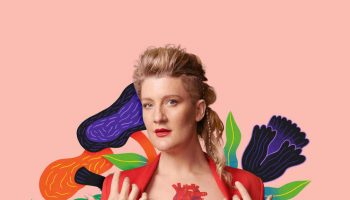I’m a vegetarian for ethical reasons, buuuut I think veganism is a little extreme.”
I literally said these words during an interview at an accounting firm after being asked about my passions. (Plot twist: I didn’t get the job.)
Two weeks later, I found myself at a seminar on nonhuman animal rights law. Truth bombs were dropped, and before I knew it, I associated myself with something I had loathed throughout all my adolescent life: the dreaded V-word.
The ensuing months were… interesting. My dad labelled me an “extremist.” I was called “militant” more than once, even though I never used violence in my vegan advocacy. One particularly wise Facebook warrior (bless their soul) even compared me to Hitler.
It’s been a year now, and I’ve learned a lot. Not just about nonhuman animals, but about human animals as well. Prior to joining the nonhuman animal rights movement, I had never studied privilege, institutional sexism, or even systemic racism, despite being a person of colour. But the single most surprising thing I discovered was this: at its core, being vegan is not in itself a compassionate act.
Confused? I hope so. Let’s take our minds for a spin.
If we look to mainstream capitalistic vegan marketing, we’ll find that organisations usually appeal to people’s sense of compassion. The front-page of a VeganEasy booklet reads, “Your free guide to living a kinder, healthier, and more earth-friendly life”. Animals Australia sells veganism as “healthier, kinder, and better for the planet”. The Vegan Society explicitly claims that being vegan “demonstrates true compassion for animals”.
These campaigns reinforce the idea that vegans go the extra mile for animals; that being vegan is akin to an act of charity reserved for the privileged. They paint veganism as a faddish, vaguely positive lifestyle choice like a juice cleanse or a KeepCup. More importantly however, the campaigns imply that to not be vegan is to be neutral.
This has some worrying implications about how veganism is perceived in society, and especially within social justice spaces.
A few weeks ago, I sat in a room with several social justice advocates discussing issues surrounding anti-racism and anti-sexism. In the middle of the table, there sat a bowl of nachos laden with dairy cheese. I found myself a touch perplexed by this, and I’ll explain why.
Dairy farming is among the most widely misunderstood practices in modern history. Contrary to popular belief, it is not a harmless industry. Just like with any other mammal, for us to take milk from a cow, we must forcibly impregnate her – usually via artificial insemination using a steel rod. She bears young about four times in her lifespan, and afterwards is killed because it becomes too costly to take milk from her exhausted body. Meanwhile, all her children are taken from her against their will, normally within 24 hours of birth. Female calves go on to enter the same cycle as their mothers. Male calves, on the other hand, are generally classified as “waste” and killed as infants. These practices are essential and normal in even the most free-range, organic farms.
Even at its best, there is nothing neutral about dairy. In fact, we could argue that its products are derived from exploitation and violence.
So how did a bowl of dairy cheese exist so peacefully in that room of social justice advocates, students who usually unabashedly speak out against violent systems?
The answer can be found in the marketing. The marketing that told us that veganism is positive, while non-veganism is neutral. The marketing that failed to help those advocates understand a crucial, hard-to-stomach truth:
Non-veganism is not a neutral position. Non-veganism supports systems that deliberately go out of their way to breed animals into existence, then confine and kill them.
In other words, non-veganism is a continued pattern of aggression towards animals.
Hold on, non-vegans. Stay with me. I promise it gets better.
Let’s look at this way: I, Dilan Fernando, am currently sitting here, writing this article in John Medley Library. I am refraining from punching anyone in the face. Does that make me a compassionate human rights activist? Obviously not – I’m just respecting students’ basic right to be safe from unprovoked bodily harm. In a similar sense, being vegan isn’t necessarily about compassion. Rather, it’s simply about no longer supporting a system that kills animals for taste and convenience. On the other hand, non-veganism continues to promote a system of deliberate violence.
Chill. I promise you’ll feel better by the end of this.
I’m not saying that all non-vegans are aggressive people for supporting animal industries. In fact, I’m convinced that most of us believe we’re all making humane choices.
Few of us are told about how these products – meat, dairy and eggs, for instance – involve inescapable violence. Instead, from childhood we are entertained with fairy tales of green fields, cows who beg to be milked, and “humane slaughter”. Even fewer of us are told that animal products are, for most of us, unnecessary for human wellbeing. Instead we are spoon-fed stories that milk builds strong bones and that we need meat for protein. None of us chose to be told these stories. Therefore there is no reason to feel attacked when it turns out those stories aren’t true.
I’m not out to attack your diet, because as intersectional activist Javed Deck states:
“It’s stupid, disrespectful, and ineffective to tell people what they should eat. But it can be necessary and constructive to have conversations about the systems we are complicit in and how we feel about them.”
Our society has built a system that normalises and encourages violence against nonhuman animals. It’s important to understand that this system perpetuates fiction and hides reality in surprisingly obvious ways. Our primary school teachers tell us that red meat is essential for iron, when the truth is dark leafy greens will do just fine. In 2015, Liberal senator Chris Back introduced laws to prevent activists from taking undercover video footage at farms and slaughterhouses. Just last January, Meat and Livestock Australia went so far as to cast left-wing heartthrob Lee Lin Chin in a TV ad to convince us that people who don’t eat lamb are un-Australian.
They tried to tell us that people who don’t eat the flesh of slaughtered baby sheep are un-Australian. Let that sink in for a moment.
Most of us believe we are basically good people – and I think most of us actually are. Sometimes, though, it turns out that our seemingly innocent daily habits are anything but neutral. In those situations, we have a choice to make. On one hand, we could interpret the information as a personal attack and shut it out. Alternatively, we can ask productive questions to unravel these systems of violence and challenge how we participate in them.
Questions such as:
Why are we comfortable with eating a cow, but not a dog we have known and loved?
When hens lay as many eggs as they do, what kind of effect does this have on their body?
Why is meat considered “manly”?
Challenging questions can yield challenging answers, presenting us with a dozen doors without telling us which to open first. But they can also help us understand the nature of the systems we participate in, and how our individual actions really can change the world.


